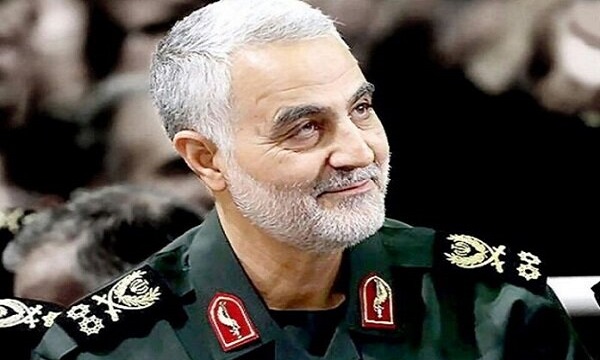Iranian FM: General Soleimani’s Blood Unites Regional People against US Deployment
 “Last year, across the region, from Iran and Iraq to India and Pakistan, people showed disgust for murderers of General Soleimani,” the foreign ministry wrote on its official twitter page, and released photographs of ceremonies held by the regional nations to mourn General Soleimani’s martyrdom last year.
“Last year, across the region, from Iran and Iraq to India and Pakistan, people showed disgust for murderers of General Soleimani,” the foreign ministry wrote on its official twitter page, and released photographs of ceremonies held by the regional nations to mourn General Soleimani’s martyrdom last year.
“His blood united our region in standing in opposition to the US arrogance and presence. A real response to recklessness. The anger and unity still stand,” it added.
The foreign ministry also used the #WillNeverForgetWillNeverForgive in emphasis for the harsh revenge vowed by the Iranian people and officials after the US assassination of General Soleimani.
The Iranian foreign ministry had also in a statement on the occasion of the anniversary of the US assassination of General Soleimani on Tuesday underlined that the Iraqi parliament’s approval in January is a beginning to end the American forces’ presence in the region.
“By the cowardly assassination of Gen Soleimani, the US committed a grave mistake,” the Iranian foreign ministry wrote on its official twitter page.
“Iraqi MPs' vote to expel US troops is the beginning of the end of the malign presence in our region. Our region has suffered enough by the interventions of the US outlaw regime,” it added.
Lieutenant General Soleimani was assassinated in a US drone strike on Baghdad International Airport in Iraq on January 3, 2020.
The airstrike also martyred deputy commander of Iraq's Popular Mobilization Forces Abu Mahdi al-Muhandis. The two were martyred in an American airstrike that targeted their vehicle on the road to the airport.
Five Iranian and five Iraqi military men were martyred by the missiles fired by the US drone at Baghdad International Airport.
On January 8 and after the funeral ceremony of General Soleimani, the IRGC Aerospace Force started heavy ballistic missile attacks on US Ein Al-Assad airbase in Southwestern Iraq near the border with Syria and a US operated airbase in Erbil in retaliation for the US assassination of General Soleimani.
Ein Al-Assad is an airbase with a 4km runway at 188m altitude from sea levels, which is the main and the largest US airbase in Iraq. Early reports said the radar systems and missile defense shields in Ein Al-Assad failed to operate and intercept the Iranian missiles. Unofficial reports said the US army's central radar systems at Ein Al-Assad had been jammed by electronic warfare.
The second IRGC reprisal attack targeted a US military base near Erbil airport in Iraqi Kurdistan Region in the second leg of "Martyr Soleimani" reprisal operation.
Iraq said the attacks had not taken any toll from its army men stationed at these two bases. The US army had blocked entrance into Ein Al-Assad to everyone, including the Iraqi army.
The IRGC officials said none of the missiles had been intercepted.
The Iraqi parliament called on the government in January to work to end all foreign troop presence as a backlash grew after the killing of the senior Iranian and Iraqi military commanders in the US strike in Baghdad.
Meantime, Iran announced in late June that it had issued arrest warrants for 36 officials of the US and other countries who have been involved in the assassination of the martyred General Soleimani.
"36 individuals who have been involved or ordered the assassination of Hajj Qassem, including the political and military officials of the US and other governments, have been identified and arrest warrants have been issued for them by the judiciary officials and red alerts have also been issued for them via the Interpol," Prosecutor-General of Tehran Ali Alqasi Mehr said.
He said that the prosecuted individuals are accused of murder and terrorist action, adding that US President Donald Trump stands at the top of the list and will be prosecuted as soon as he stands down presidency after his term ends.
